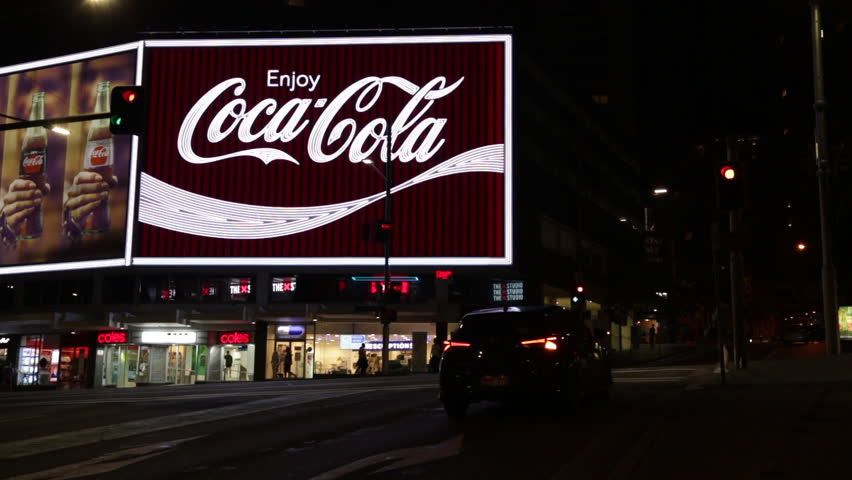
In the back of everyone’s mind, when thinking of empires such as coca-cola, you think of a room full of caucasian men running all the operations, controlling all the decisions. The same goes when you think about their legal counsel. However, Coca Cola’s legal counsel may not be what you think. The companies current policy is that law firms that plan to work with the brand must adhere to their racial quota or face a “non-refundable 30% reduction in fees and may be shut out entirely.”
This policy came into effect after the ousting of their top lawyer Bradley Gayton. Gayton, an African American lawyer, instated this policy in January of 2021, which now being reviewed by his successor Monica Howard Douglas. The policy itself is encased in a multitude of requirements all in aims to "be representative of the population it serves.” It is stated that in all of coca cola’s future legal matters, 30 percent of the attorneys must be diverse, in addition to half of those 30 percent being black. The letter sent out by Gayton outlining these requirements states that Coca Cola “will no longer celebrate good intentions or highly unproductive efforts that haven’t and aren’t likely to produce better diverse staffing.”
With Gayton no longer leading the companies legal division, Douglas has put the policy to a halt taking into consideration the opinions of multiple sources and the controversy surrounding the letter/ policy. This concern comes from the laws regarding Title VII of the Civil Rights Act of 1964, which states that “an employer can’t treat people differently or unfairly based upon their race and gender”. Although Coca-Cola’s law aims to promote diversity which is the sole purpose of the Civil Rights Act, the wording of the law still makes the enactment of Coca-Cola’s new policy quite challenging. This is due to the fact that as the racial quota is only hiring certain individuals if they have a certain amount of black employees, as they are the minority, they are still technically hiring based upon race, breaking Title VII of the Civil Rights Act of 1964.
It is in cases such as these that even when fighting for diversity the justice system, placed to ensure equal rights, actually prohibits them. In addition to this, other programs such as The Project of Fair Representation, “a not-for-profit legal defense foundation that is designed to support litigation that challenges racial and ethnic classifications and preferences in state and federal courts,” has actually urged the council to rescind the proposal. The letter from The Project of Fair Representation stated that with the policy requiring 15% of the attorneys from the frim to be black but only making up 13.5% of the U.S population and only 5.9% of those being attorneys, the requirement seem quite unreasonable. In addition to that, according to the National Association for Law Placement, African American lawyers only make up 2.1% of all law firm partners in the U.S.
The Project of Fair Representation is planning a lawsuit if Coca-Cola does not rescind this policy, with one of their leading council being “former George H.W. Bush administration official Boyden Gray.” Although the organization also aims to fight for discrimination within the justice system, the lawsuit may be based on the ideology that this may prohibit jobs for other races as “Asian (4.1%) and Hispanic (2.8%) attorneys also account for a fraction of total partners.”
This racial quota follows quotas from other brands such as AbbVie Inc, which requires that 50 percent of the partners who work on the firm’s cases must be women, and 25 percent being from underrepresented countries. In addition to that HP Inc. also required that if there is not at least one diverse attorney working on the case or they will “face a 10% fee reduction.”
These quotas, whether they be for gender or race illustrate a flaw within our justice system as well as serve as a reflection point. We ask ourselves whether these acts are truly altruistic as they are stated to be, or just another form of discrimination but in this case in favor of the minorities. Of course, the point can be argued both ways. These quotas are meant to provide jobs, create diversity, increase the employment rate for those who have been marginalized for decades making companies rethink the diversity within their firm when hiring. However, this brings up another issue of whether individuals want to be hired based on their race or because of their abilities. Being a mixed female wanting to enter into the corporate legal field, I definitely know that I for one would like to be hired for my ability rather than hired because some firm needs me to fill their quota. Therefore although I believe that this policy was created in good hopes, it paints these individuals as a further part of the minority, getting them pity jobs rather than ones that can be earned with hard dedication and skill.
This policy and others that this new quota has brought into light make us reflect on the place that society is in today, still needing to constantly fight for equal rights whether that be race, gender, sexuality. The system is so thrown off that even if we do make it to the top and try to change it for others after us, it ends up creating further divide making hiring those who are not ‘the ideal’ a burden. We still have leaps to go before we reach an ideal legal system and are far from a perfect legal system but it is unfortunately not through well-intended racial quotas, that we will get there.
REFERENCES:


Comments